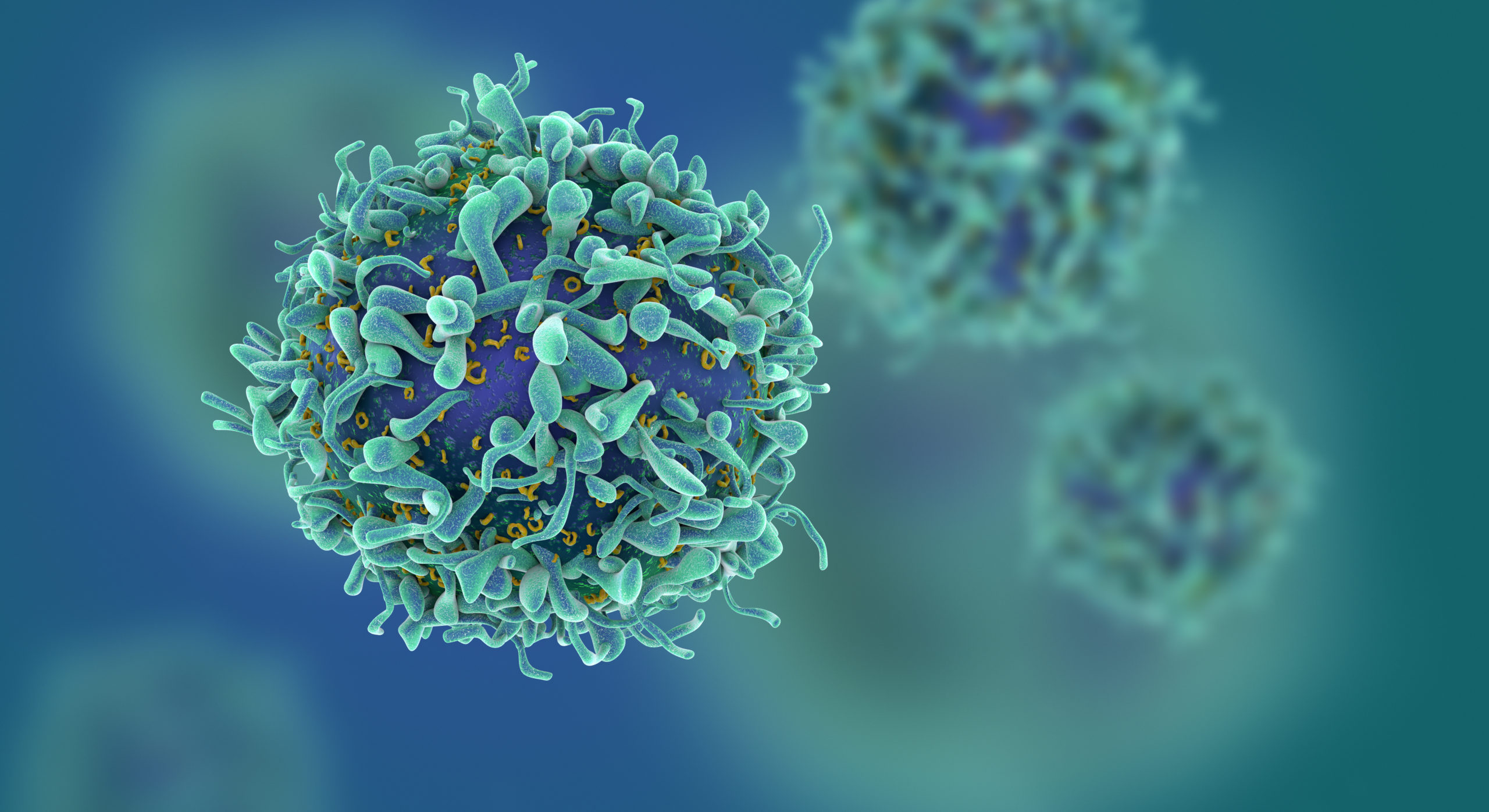-

Medical Student Investigates Genetic Diversity in Lung Cancer
Stas Fridland, a rising third-year medical student, investigated genetic differences in solid lung cancer tumors and clinical outcomes for his Area of Scholarly Concentration (AOSC) project.
-

Weekly Symptom Monitoring Improves Quality of Life in Cancer
In adult patients undergoing cancer treatment, weekly electronic symptom monitoring significantly improved quality of life, according to a recent study published in JAMA.
-

Reducing Blood Cultures and Antibiotics in Pediatrics
Multidisciplinary diagnostic stewardship programs safely decreased blood culture collection and antibiotics for pediatric intensive care patients, according to findings published in JAMA Pediatrics.
-

Anti-seizure Medication has a New Target
Designed to target AMPAR receptors in the brain, the medication — called perampanel — also modulates kainate receptors.
-

Dual Function Found for mRNA Modifier
An enzymatic modifier of messenger RNA has different functions depending on its location, according to a recent study.
-

Physician Assistant Students Embrace ‘Shades of Purple’
Rosalia Garcia and Kristin Brennan, students in the PA Program, lead the Shades of Purple program, a bimonthly discussion group that covers the intricacies of care for differently abled or diverse patients.
-

Dissolving Implantable Device Relieves Pain Without Drugs
A Northwestern University-led team has developed a small, pain-relieving implant that could provide a much-needed alternative to opioids and other highly addictive medications.
-

Fathers’ Presence During Childhood Predicts Adult Testosterone Levels
The presence and involvement of fathers with their sons during childhood predicted the profile of adult testosterone levels, according to a recent study.
-

Epigenetic Biomarkers Predict CVD Risk
A new study provides evidence that blood epigenetic biomarkers contain “snapshots” of past cardiovascular health exposures and behavior at the molecular level.
-

Student Spearheads Ukraine Aid Efforts
Daniel Latyshev, a rising second-year medical student, has organized several aid efforts for Ukraine.
-

Hospitals Bound to Patient Safety Rules that Aren’t all Backed by Evidence
A new Northwestern Medicine study found of the new rules issued during a one-year period by the The Joint Commission, many did not appear to be supported by published evidence.
-

Identifying Protein Interactions that Promote Cancer Growth
Proteins gain new interactions that are potentially oncogenic and could drive cancer development and growth, according to a recent study.
-

Combination Treatment May Improve Quality of Life in Kidney Cancer
Patients with advanced kidney cancer who received a new combination treatment reported improved health-related quality of life outcomes, according to a Northwestern Medicine study.
-

Calcium Channel Blockers May Improve Chemotherapy Response
Calcium channel blockers may improve treatment for patients with pancreatic cancer receiving chemotherapy, according to a recent study.
-

New Physician Assistant Class Welcomed at White Coat Ceremony
On Friday, June 17, the Physician Assistant Program’s Class of 2024 was celebrated by the program community and their family and friends at a special occasion known as the White Coat Ceremony.
-

Expanded Role for Calcium Channels in T-Cells
A subunit of voltage-gated calcium channels was found to have a functional role in T-cells, according to a study published in Nature Communications.
-

Pride Panel Highlights LGBTQ Leadership and Activism
The Institute for Sexual and Gender Minority Health and Wellbeing hosted its annual Pride Panel in celebration of Pride month, held virtually on June 14.
-

Deep-learning Empowers Discovery of New Genetic Mutation in Cancer
A deep learning model has discovered genetic variations in cancer that are undetectable in traditional genome sequencing.
-

Distinguished Implementation Scientist to Lead Medical Social Sciences
Rinad S. Beidas, PhD, professor of Medical Ethics and Health Policy and of Psychiatry at the University of Pennsylvania’s Perelman School of Medicine, has been named chair of Medical Social Sciences.
-

Physician Assistant Students Help Save a Life
PA students Nicole Pinakidis and Kristin Brennan recently put their emergency care skills to use to help save a person’s life during this year’s Chicago Half Marathon.






